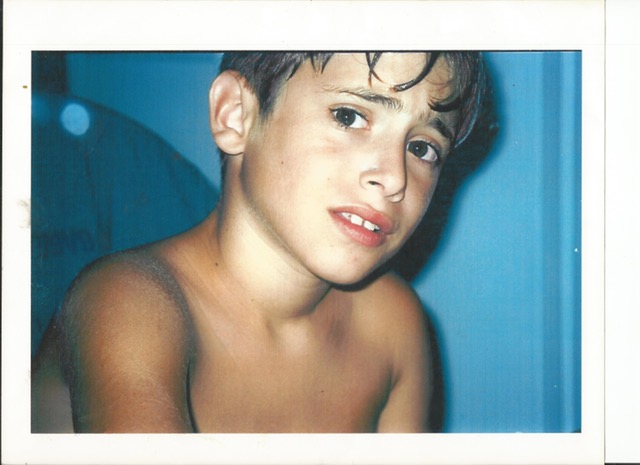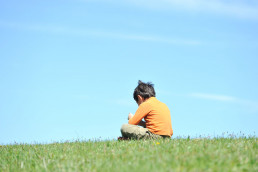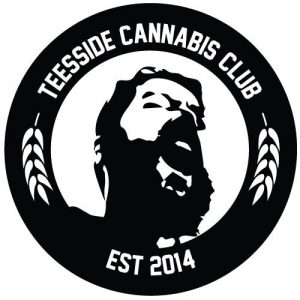Autism and Marijuana: Mother's Battle for Whole Plant Research
Autism and Marijuana: Mother’s Battle for Whole Plant Research
She’s an Israeli mother of 3 boys, her oldest, Yuval, 23, is severely Autistic and treated successfully with cannabis after years of agony.
As an activist for years in promoting the rights and legislation for ASD Children and adults in Israel, Via ‘ALUT – the society for autistic children in Israel and “Kvutzat Hashavim” an NPO that develops inclusive solutions for the severely Autistic, She’s now launching a Crowd funding campaign for a first of its kind clinical research in Cannabis for Autism. This crowd funding campaign is a collaboration of Israeli and American mums and cannabis advocates – Abigail Dar, Janie Maedler Policy Advocate, CannaKids ASD Consultant and Board President of Rylie’s Smile Foundation and Mieko Hester-Perez International Special Needs Advocate, Scientific Advisor and a Board Member on the NORML Women’s Alliance.
“For me the difference between whole plant from isolated cannabinoids is the difference between a medicine that works and a medicine that “might” work for some.”
1. What condition does your son have?
Yuval is 23 years old. He is diagnosed with Severe Autism since he was 18 month old. He is non-verbal, and suffers from SPD (sensory processing disorder). He Also has Epilepsy which developed at the age of 17.
2. Can you describe the life with autistic child and what are the medical treatments you used till now?
Yuval restlessness and anxiety became very difficult as he grew up. When he was 12 years old, after consulting with the best doctors and specialists we started treating him with Anti-Psychotic Medications. Along the years, We increased dosages, changed medications, but things just got worse. He became more and more Anxious, restless, sleep deprived and the hardest of all – self injurious and Aggressive towards his caretakers and toward me. Life became impossible to all of us. No matter what Therapy or medication we tried, Yuval suffered and all of our family did, or as we call it “life in the shadow of hell”.
3. As a mother, did the decision to try cannabis treatment was a difficult one?
By the time we got the Israeli Ministry of health license for Yuval, I’ve already read a lot of scientific papers and anecdotal stories about Autistic kids and adults that have been treated successfully with Medical Cannabis. I was also aware of all the side effects of the prescription drugs we gave him along the years. Cannabis usually doesn’t have those side effects.
Also, we were so hopeless – nothing worked for Yuval, every drug we tried seemed to get him more and more anxious and aggressive. So we had nothing to lose.
4. How did cannabis first effect your son?
I have no other word to describe it but “Miracle”. After years of searching ways to help Yuval deal with his difficulties, we immediately realised that there’s something in the Cannabis oil that really works. Within an hour from first administering the first dose we suddenly saw him sitting on the living room, smiling, and peacefully watching TV – maybe oblivious to most parents, not to us.
After a year of treatment, I can say that my son, that not too long ago was suffering so much, became a different person, much more peaceful, smiling, more initiative and attentive and most important he stopped harming himself and others. Suddenly I could be alone with him, take care of him, take him out on trips and go out shopping. We realised that we can provide him and the rest of the family the quality of life that we were longing for.

5. What type of cannabis or strains is your son being prescribed?
Since Yuval Has also epilepsy, we treat him with a combination of High CBD whole plant oil (hybrid, more Indica), 6:1 Cbd:Thc during the day. In the evening, we add a higher amount of THC – Cbd:Thc (1:6) which help him to sleep and wake up with a smile. But I must admit that we had to go through “trial and error” until we found what strain and dosages works best for him. We tried high CBD with no Thc, he bounced off walls, when given whole plant with more thc– that was the turning point for him.
As for now I’m in touch with over 40 parents of Autistic kids and Adults, and we see that they differ from each other – Some kids needs more CBD, some More Thc, but for sure they need the whole plant. We know that we still don’t know enough to define exactly what each one really need and parents going this path should be aware that for now, it’s a voyage of “trial and error” till you find the right strain for your kid. But the good news is that when you find, and it works, and it works like nothing else does.
6. How is this administered?
We use oil which is provided to us by one of the Israeli licensed growers. Few drops under the tongue 3 times daily. The taste and the smell sometimes makes it difficult for Autistic kids to handle. But I’ve notices with Yuval and with many other kids, that once they realise it helps them, they are willing to take it.
7. As a cannabis campaigner, what has been the reaction from your friends and family? The first one to draw my attention to the cannabis option for Yuval was my 80 years old mother-in-law. My friends and family are very supportive. Some of them are parents for Autistic children who really look for something to help their kids. In general we get a lot of positive reactions that comes from the understanding that this plant has recreational uses, but is also a unique medicine.
8. In Israel Autism was not a qualifying condition for medical marijuana, you have campaigned for this to happen. How did you do this?
Once we got Access to for Yuval, and experienced what it did to his life and ours, I knew I have to make it accessible to so many other Autistic kids and adults.
I went public in the Israeli Media, Met Dr. Michael Dor, the Head of Medical Cannabis Unit in the Israeli Ministry of health who was very attentive. We got to a point where there was an official announcement by the Israeli Ministry of health that Autism will soon be qualifying condition soon, they appointed a sub-committee to determine the specifics. I believe that we’re really few months close to having Autism Qualifying condition here in Israel.
11. Israel is the global centre of cannabis research, have you met or been in contact with any eminent scientists in the field of medical cannabis?
I’ve met and mainly listened and learned from Senior Neurologists and Researchers, among them Prof. Uri Kramer, Director of Paediatric Epilepsy Service, Tel Aviv Sourasky Medical Centre and one of Israel’s leading researchers in the Cannabis treatment of epilepsy. Prof. Dedi Meiri, from Laboratory of Cancer Biology and Cannabinoid Research in the Technion, Israel Technology Institute who became a guide and source of knowledge help me differentiate rumours from facts. Dr. Michael Segal, A Psychiatrist, who specialised in treating Cannabis for PTSD and Yuval’s doctor and Dr. Adi Aran, Head of Neuropediatric unit at the Shaare Zedek Medical Centre, whom I hope I will collaborate in the clinical research about Cannabinoids for behavioural problems in autism spectrum disorder.
I meet more and more doctors and researchers that take a great interest in Cannabis for Autism, but even when we’ll have the Autism as qualifying condition here, we still have a way to go. I’ve realised that if we want to have this treatment accessible to Autistic kids and Adults around the world, We must have a proper whole plant study, scientific peer-reviewed paper that will help the medical and decision making authorities everywhere to accept this treatment as mainstream.
12. How is important is “whole plant medicine” to you?
For me the difference between whole plant from isolated cannabinoids is the difference between a medicine that works and a medicine that “might” work for some. Whole plant is not patentable, you can’t have FDA approved drug on whole plant, so you can’t make money out of it… but I’ve learned how little we still know about the plant, how many different cannabinoids and trepans are there “in the game” (or what is known as the “encourage effect”). Whole plant works better for them.
13. What is the current state of the research for treating Autism with Medical cannabis?
There is one research proposal that already received all regulatory and ethic approvals from the Israeli Ministry of health. But haven’t began yet. The strains are not finalised yet and we’re in the process of gathering clinical data.
14 . So what or why are you crowd funding for a research for Autism?
The funding of the research is also an issue. The investors and pharma who are willing to put money for the research are willing to do so would like to use patentable single cannabinoids so they could leverage the trial in the direction of FDA approvals that will bring them revenues, and that’s not necessarily the best treatment for our kids.
Since we’re talking about the first of its kind clinical research for Autism, my biggest fear is that using “CBD only”, or separated cannabinoids would end up with a statement that “cannabis doesn’t work for Autism” and that would be devastating. The pioneer clinical research must be done with a whole plant, since we don’t really know what ratios and what the exact cannabinoids profile works there for our children.
That is why we decided , At “Kvutzat Hashavim” (the peer group), the NPO I’m part of, to join forces with Mieko Hester-Perez from the Unconventional Foundation for Autism and Janie Maedler from Rylie’s Smile Foundation and launch a crowd funding campaign for a whole plant research – having the money from the parents, organisations and supporters who’s their main interest is finding relief for Autistic kids and adults.
15. Is there any independent research or research being advocated by parents such as yourself?
Yes. We have few researchers and medical centres in Israel that are willing to do a whole plant research for Autism. There are already 22 clinical researches with Medical Cannabis undergoing here in Israel and our study about whole plant and Autism is getting a lot of attention worldwide.
16. Tell us about your crowd funding mission and goals for research?
We would like to have the strains and ratios needed without being tied to business interest. Having the money for the research will be a “game changer”. That’s why we’re launching, on Mid November, a crowd funding campaign –To make sure that the first of its kind research will be done for the right reasons and motives. This campaign is a collaboration of parents and organisations – Israeli and American – who want the best for their kids. “Kvutzat Hashavim” the Israeli NPO I’m involved in together with international cannabis advocate Mieko Hester-Perez and Janie Maedler Policy Advocate, CannaKids ASD Consultant and Board President of Rylie’s Smile Foundation.
For further info and updates, anyone who’s interested is welcome to contact me either by mail (darabigail@kvutzat-hashavim.org) or click here and leave your contact info
17. Do you have anything to say to the mothers of autistic children out there that are looking to cannabis for medicine?
I would say that there is hope. That this plant can help, even sometimes heal, our kids. Let go of prejudice and what you’ve been taught. I was there once. Cannabis is a medicine, and holds a great potential for Autistic Kids and Adults.
References and further Reading
Autism and Whole Plant Cannabis Clinical Study: https://www.generosity.com/medical-fundraising/autism-and-whole-plant-cannabis-clinical-study
The Teeside Cannabis Club
The Teeside Cannabis Club
On our continued journey into Northern England we arrived in county Durham to meet the Teeside Cannabis Club.
The Teeside cannabis club have played an important part in raising awareness of the medicinal properties of the Cannabis Sativa L plant, they hold regular (alcohol free) events and support patients in the local community. They believe in having open dialogue with local police forces and have done just that providing the local Cleveland and Durham police forces with information for the last two years.
Many people credit Ron Hogg’s and county Durham’s forward thinking on cannabis to be the result of this information and the bridge built between local cannabis communities and their respective police forces. For those that don’t know Ron Hogg, he is the recently re-elected Police commissioner for Durham, who last summer, after meeting with local cannabis clubs came out and effectively decriminalised personal grows:
“We are not prioritising people who have a small number of cannabis plants for their own use. In low level cases we say it is better to work with them to put them in a position where they can recover.”
Interviewing Teeside Cannabis Club:
Q1.What was your first experience with cannabis?
T: “After a stressful day of work I went back to the digs where there were lads who did smoke, had one puff on one of their joints and I had the best night sleep ever.”
Q2. When did you first view cannabis as a medicine?
T: “The whole time as a medicine. That first night when I was pain free. I use cannabis for my condition. I have a degenerative disc disease, I have spondylitis in my neck and suffer from depression. Doctors gave me every painkiller available, they made me quite sick and angry. Cannabis sorts out my pain and has extended my working life.”
Q3. When was the Teeside Cannabis Club formed?
T: “John Holiday started the group we came together in 2014 and it has snowballed from there. We came at it from the same angles.”
Q4. How does the TCC support patients in the local community?
T: “We support them with information, we talk to them and offer advice on growing, cultivation and how to make cannabis medicine.”
Q5. Do you feel as an adult there is need to educate the youth on cannabis?
T: “It’s not just the youth, its adults too, everyone across the board. If more people realised what a massive resource this plant is then it would be legalised in no time”
Q6. What has been the most interesting result you have seen locally from someone using cannabis as a medicine?
T: “Zero-Dark Thirty (9%CBD 4.5%THC) extract mixed with coconut oil. I gave freely to one lass with colitis, another with crohn’s disease and two lads with epilepsy. The results were amazing. The two lasses were pain free and one of the lads stopped a seizure immediately after using this medicine.”
Q7. What would you like to see more of from the other cannabis clubs in the UK?
T: “I like what Dundee are doing at the minute. A shopfront and good information. The locals there can learn all about cannabis and how it can help people in their communities.”
Q8. Do the Teeside Cannabis Club have any events planned in the future?
T: “Yes we have the Canna Campfest. An alcohol-free social event, the first openly pro cannabis event (in its second year) actively working with the local police.”
Q9. What strains are currently being grown by the TCC?
T: “Zero-dark thirty, Star tonic, Chemdawg, Blue dream and agent orange.”
Q10. What advice would you give to someone who had never heard of cannabis as a medicine?
T: “Do your research. It is as simple as that. Ignorance is a choice. Every human has an endo-cannabinoid system.”
Q11. Do you believe it’s wrong that local cannabis club has to support patients where governments will not?
T: “Yes and No. It is wrong that our Government restricts this but at the same time its allowing community care to flourish. Cannabis has become a local resource where the recreational supports the medical.”
Q12. What message would you give to aspiring cannabis clubs?
T: “Stop trying to learn the ropes and start talking to your local police force as the Teeside has been doing for the last two years with the Cleveland and Durham forces. We contacted Ron Hogg when he first had success in cleaning up Seaham of drugs by treating it as a health issue and not a criminal one. Cannabis clubs can be the bridge between the community and the police. They can discuss harm reduction and exchange info and medical research.”
Q13. The Durham Police force have obviously set a precedent with their stance on cannabis. What is your view on your local police force in terms of how they are viewing cannabis?
T: “Ron Hogg is getting it all right! The figures stand for themselves. Last year Ron introduced the policy of acting on complaints only. Since then, Durham has become the only outstanding police force in the country. The ‘hands off approach’, if you will, is paying dividends. This approach can allow much needed police funds to be directed to far more serious crime.”
Q14. How big a role do you see the North East playing in the cannabis debate?
T: “With a PCC who recognises the medicinal benefits of cannabis and is also a big supporter of decriminalisation, I see the north east as being central. Durham constabulary’s approach can allow somewhere like Durham to become a safe haven for those in desperate need.”
In Search of Your Local Cannabis Club
In Search of Your Local Cannabis Club
We believe there are over one hundred cannabis clubs spread out over the UK. While some can be more focused on recreational use with the associated social media ‘stoner’ shots of the latest high-THC shatter for sale, others seem to play a much more responsible role in their communities both in the informative information they supply online and the actual patient support provided locally.
MMJ headed north where a growing number of clubs are fast gaining a reputation for doing exactly this.
First up on the road (M1) north was The Northampton Cannabis Club. The NCC have already made the BBC news with their community outreach project of tying warm clothes around trees and lampposts for the homeless.
We met them in their home over tea and biscuits.
Q1. What was your first experience with the cannabis plant?
J. “I first smoked it when I was 12, in my village”
C. “My Older sibling’s friend introduced me to it around the same age.”
Q2. At what point did you recognise cannabis as a medicine?
J. “When is was 15-16 curiosity led me to all the research.”
C. “In 2010 I was diagnosed with a rare form of cancer ‘Pseudimyxoma Peritoneii’, I was operated on with cancer in my spleen, gall bladder, appendix liver and bowels. I had part of these removed before the cancer reoccurred in 2012. Where the NHS were no help, cannabis saved my life. I wouldn’t be here without it.”
Q3. When did you form the Northhampton Cannabis Club?
J. “4-5 years ago some people got together and it’s carried on from there.”
Q4. How does your club support patients in the community?
C. “We support them, anyone one that needs help. We will not deny anyone.”
Q5. What inspired you to do the community outreach projects such as feeding and clothing the homeless?
C. ‘There wasn’t any help being offered by council services or anyone apart from the Sikh community. We wanted to help them and show that them we cared.”
Q6. Do you think as adults there is a need to educate the youth about the dangers of smoking cannabis?
C. “Yes”
J. “Yes definitely. People shouldn’t be using high strength cannabis when their brains are developing. 18 years or 21 years should be legal age.”
Q7. What was the first cannabis product you made?
J. and c: ‘Brownies when we were younger.’
Q8. What was the last product you made?
J. “Cannabis balm for topical application made with the following ingredients: Almond oil, mustard seed oil, cress seed oil, cocoa butter, shea butter, coconut oil, hemp oil, beeswax, turmeric root, ginger root, cumin and Vitamin E.”
Q9. What would you like to see for the other clubs in the UK?
C. “Being more active in the local community, improving relationships with other clubs and providing better information for patients.”
Q10. Do you have any events planned in the near future?
J. “ We are hosting a BBQ and picnic on May 15th.”
Q11. What strains are currently being grown by the NCC?
C. “CBD shark shock, Cookies Kush, northern lights .”
Q12 What advice would you give to people that have never used or heard of cannabis being a medicine?
J. “ It’s all out there on the internet if you do some research. Googling ‘Cannabis Clinical Studies’ is a good place to start.”
Q13. Do you think it is wrong that a cannabis club has to support the local patient community where governments will not?
C. “ We help people that need help. We are a responsible community and are proud to support our own.”
Q14. How much does your club rely on donations?
J. “Like we say; we will help people that need help. The more people we have helped the more donations we have received for raw cannabis that can go into free medication for the people who need it.”
Q15. What message would you give to aspiring cannabis clubs and communities?
C. “Be aware, be informed and don’t be ignorant.”
~
Are you a member of a cannabis club? Does your club support patients in the local community?
We would love to hear from you, email: jlg@medicalmarijuana.co.uk




